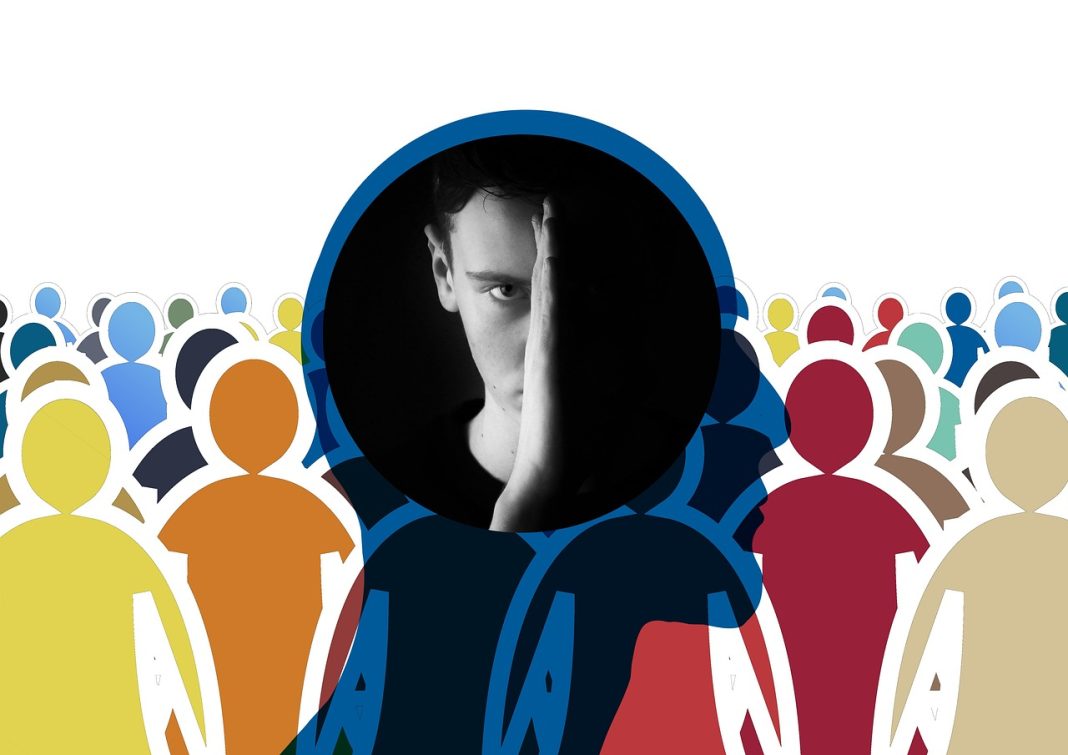Social anxiety disorder (social phobia) is currently the world’s third-largest mental health problem. The latest epidemiological data show that social anxiety affects around 7 per cent of the population at any time. The probability of developing a social anxiety disorder at any point in life is over 13 per cent.
Social anxiety is the fear of social situations that involve interaction with other people. Social anxiety is the fear and anxiety of being judged and evaluated negatively by others. It is a pervasive disorder and causes anxiety and fear throughout most of a person’s life. It’s long-lasting because it doesn’t go away on its own. Only natural cognitive-behavioural therapy (CBT) can change the brain and help people overcome social anxiety.
Many often consider a man or woman with social anxiety shy, quiet, withdrawn, abandoned, unfriendly, neurotic, detached, and uninterested. Paradoxically, people with social anxiety want to make friends, belong in groups, and engage in social interactions. But having social anxiety prevents people from being able to do the things they want to do. Although people with social anxiety want to be friendly, outgoing and friendly, fear (anxiety) holds them back.
According to experts, people with social anxiety typically experience significant distress in the following situations: being introduced to other people; being teased or criticized; being the centre of attention; fear of watching or observing others while doing something; having to say something in a formal, public situation; meeting people in authority (“important people/authority figures”); feeling insecure and out of place in social situations (“I don’t know what to say.”); easily embarrassed (e.g., blushing, shivering); to lookat other people’s eyes; swallowing, writing, talking, making phone calls in public; etc.
They also mentioned that feelings that accompany social anxiety include anxiety, heightened fear, nervousness, automatic negative emotional cycles, quick heartbeat, flushing, excessive sweating, dry throat and mouth, tremors, and muscle twitching. In severe cases, people may develop dysmorphia in a part of their body (usually the face) where they perceive themselves as unnatural and hostile.
People with social anxiety usually know that their fear is irrational, not based on fact, and does not make logical sense. Nevertheless, the thoughts and feelings of anxiety persist (i.e., show no signs of going away). Appropriate active, structured, cognitive-behavioural therapy is the only solution to this problem. Decades of research have concluded that this therapy is the only way to alter the brain’s neural pathways permanently. This means that a lasting change is possible for everyone with this problem.
Social anxiety, as well as other anxiety disorders, can be successfully treated today. When seeking help for this problem, experts recommend finding an expert psychiatrist who understands the problem well and how to treat it.
Social anxiety treatment must include an active behavioural therapy group, where members can work on their “anxiety” classification and work on real-life situations with other group members.Social anxiety is an entirely treatable condition and can be overcome with effective therapy, work and patience.
Cognitive-behavioural therapy for social anxiety has been remarkably successful. Thousands of research studies now indicate that people with social anxiety disorder experience change after completing social anxiety-specific cognitive-behavioural therapy (CBT). They now live a life that is no longer controlled by fear and anxiety. Appropriate therapy remarkably successfully changes people’s thoughts, beliefs, feelings, and behaviours. A person with social anxiety disorder must be compliant and do whatever it takes to overcome it.
Social anxiety medications are helpful for many, but not all,people with social anxiety disorder. For social anxiety, research suggests using anti-anxiety agents and (perhaps) some antidepressants in combination with CBT has proven most beneficial. Medications do not have long-term benefits without active, structured CBT. Only CBT can change the association of neural pathways in the brain. The treatment used regularly must “fit” the structure of the human brain.
Current research indicates that many antidepressant medications are ineffective for social anxiety disorder, even in the short term. Additionally, every person is different, and there are no general rules that work when it comes to social anxiety and medication. People can overcome social fearby sticking with cognitive strategies and applying them practically in their lives.



 For all latest articles, follow on Google News
For all latest articles, follow on Google News